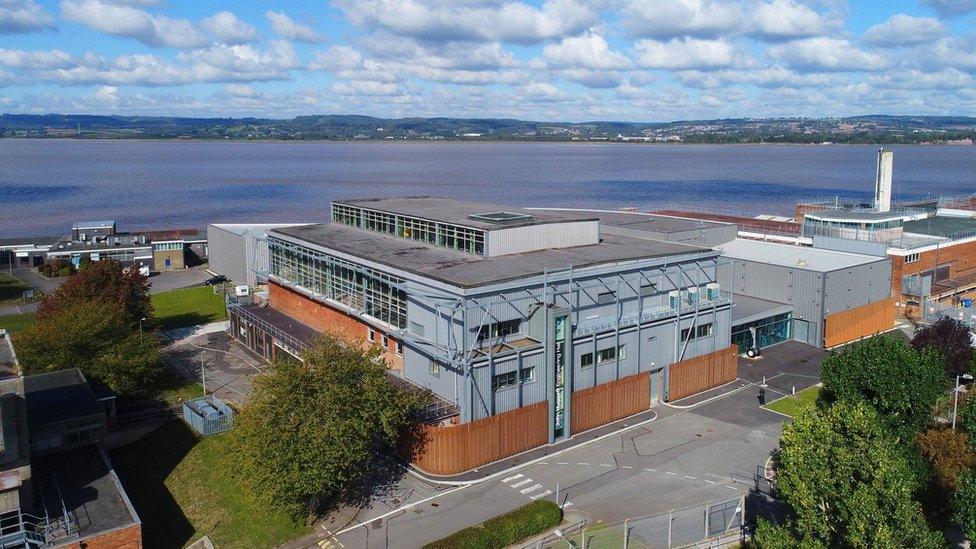Nuclear firms pledge 1,000 jobs at old reactor site
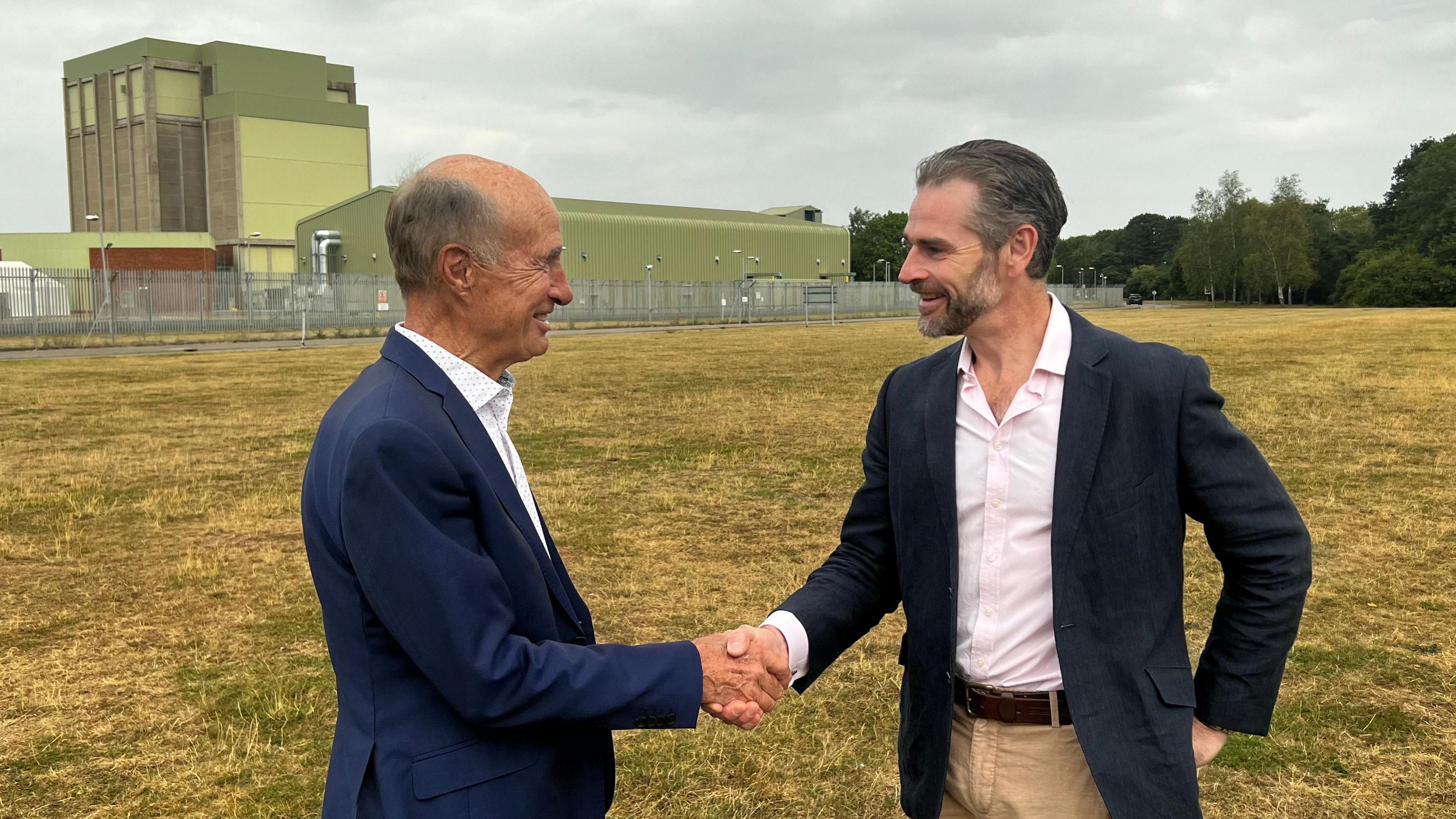
Chris Turner (L) of Chiltern Vital Group and Bill Eden from Quantum Leap Energy are working on the plans at the former Berkeley nuclear power station
- Published
Two nuclear energy companies have signed deals to create technology centres at a former nuclear reactor site.
Berkeley nuclear power station in Gloucestershire was shut down in 1989, but a developer now wants to build a "nuclear centre of excellence" on the site.
Quantum Leap Energy and Astral Systems have signed deals to set up plants there.
Bill Eden, from Quantum Leap Energy, promised "hundreds of jobs" creating fuel for nuclear fusion.
He said: "Nuclear fusion is now the technology of tomorrow, not of distant years."
Chris Turner, CEO of developers Chiltern Vital Group, said Berkeley will become "the centre of the world" in nuclear, low carbon, green technologies, and "up to 1,000" jobs would be created if the plans went ahead.
In the shadow of the old reactor lies a maze of old buildings, mostly empty and derelict. Lying next to the River Severn at the end of a single track road, it's a quiet place. And the former nuclear station, still being decommissioned, lends it a chilling edge.
The man who has bought the site has big dreams. Mr Turner's "centre of the world" comment is a bold claim, the sort many people make, so I asked him to introduce me to some real investors.
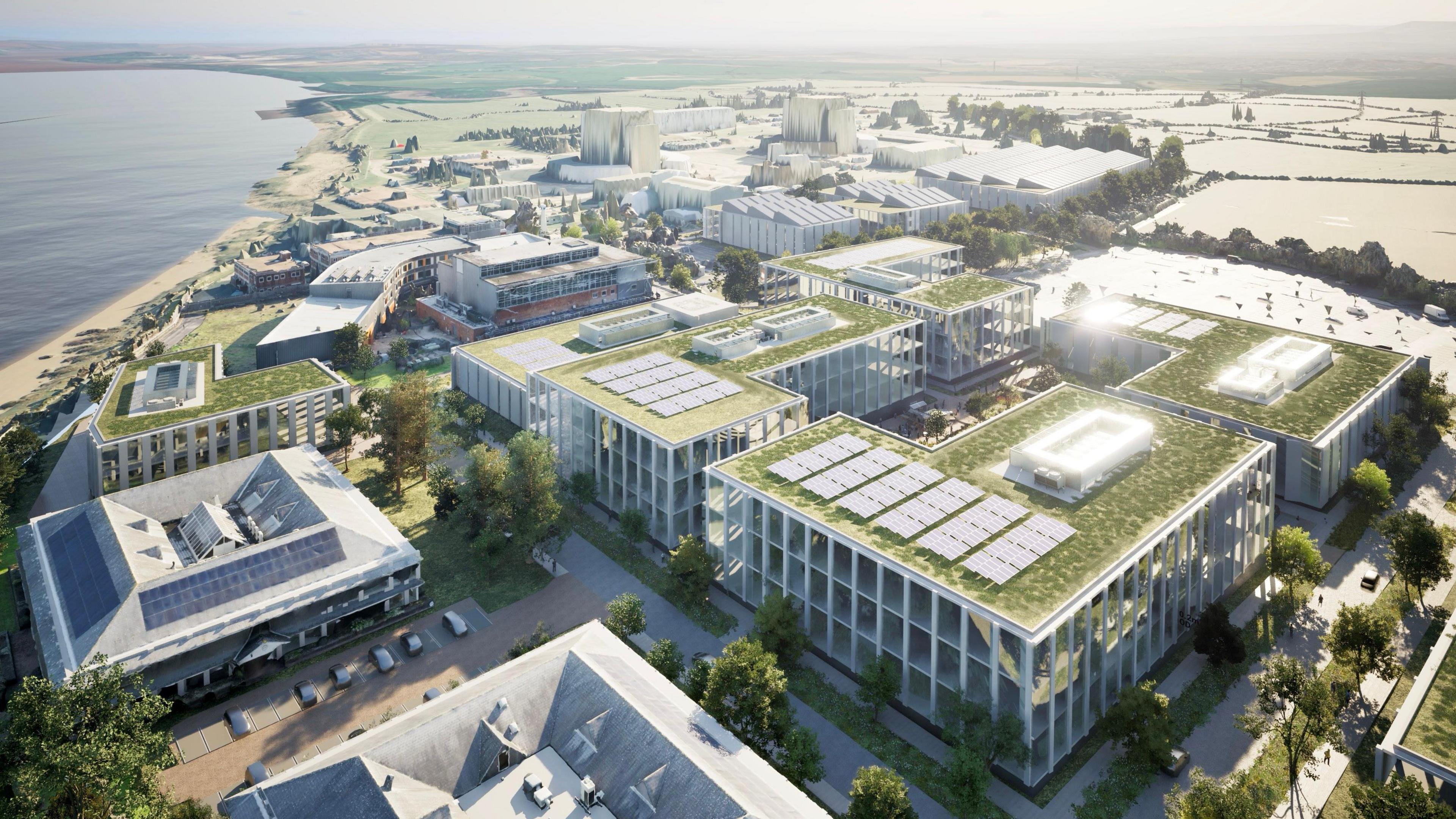
The plants would be built next to the former Berkeley power station
He found two. Bill Eden works for the UK arm of American firm, Quantum Leap Energy. Like most of the firms in this venture, the technology is complex. But my basic understanding of it is that they make fuel for the nuclear fusion industry.
"Nuclear fusion?", I asked Mr Eden, "is that a thing yet?"
"There is so much research going on," he reassured me. "It needs specific fuel to make it work, and we are going to produce that here, at Berkeley."
He said they could be commercial within two years.
'Targeted radiotherapy'
Talmon Firestone's tech is even harder to get to grips with. Also nuclear, but this time harnessing physics for medicine.
"This is targeted radiotherapy," he explains.
"Far more effective, and far more pleasant for the patient."
Nuclear medicine is not new tech. Hospitals round the country use it all the time to find and treat cancer. Small amounts of radioisotopes are injected, which find their way direct to tumours. Once there, they show up under scans so the extent of disease can be identified.
The same technology can also be used to direct radiotherapy specifically to the site of the cancer.
But the UK has to import all the vital radioisotopes used in this medicine from reactors in Europe.
In 2024, the supply chain was interrupted when two of them shut down for planned maintenance at the same time, and then the third sprung a fault.
"Something like 75% of our supply was lost," said Dr Stephen Harden, from the Royal College of Radiologists.
"It makes a really strong case for making these radioisotopes in the UK."
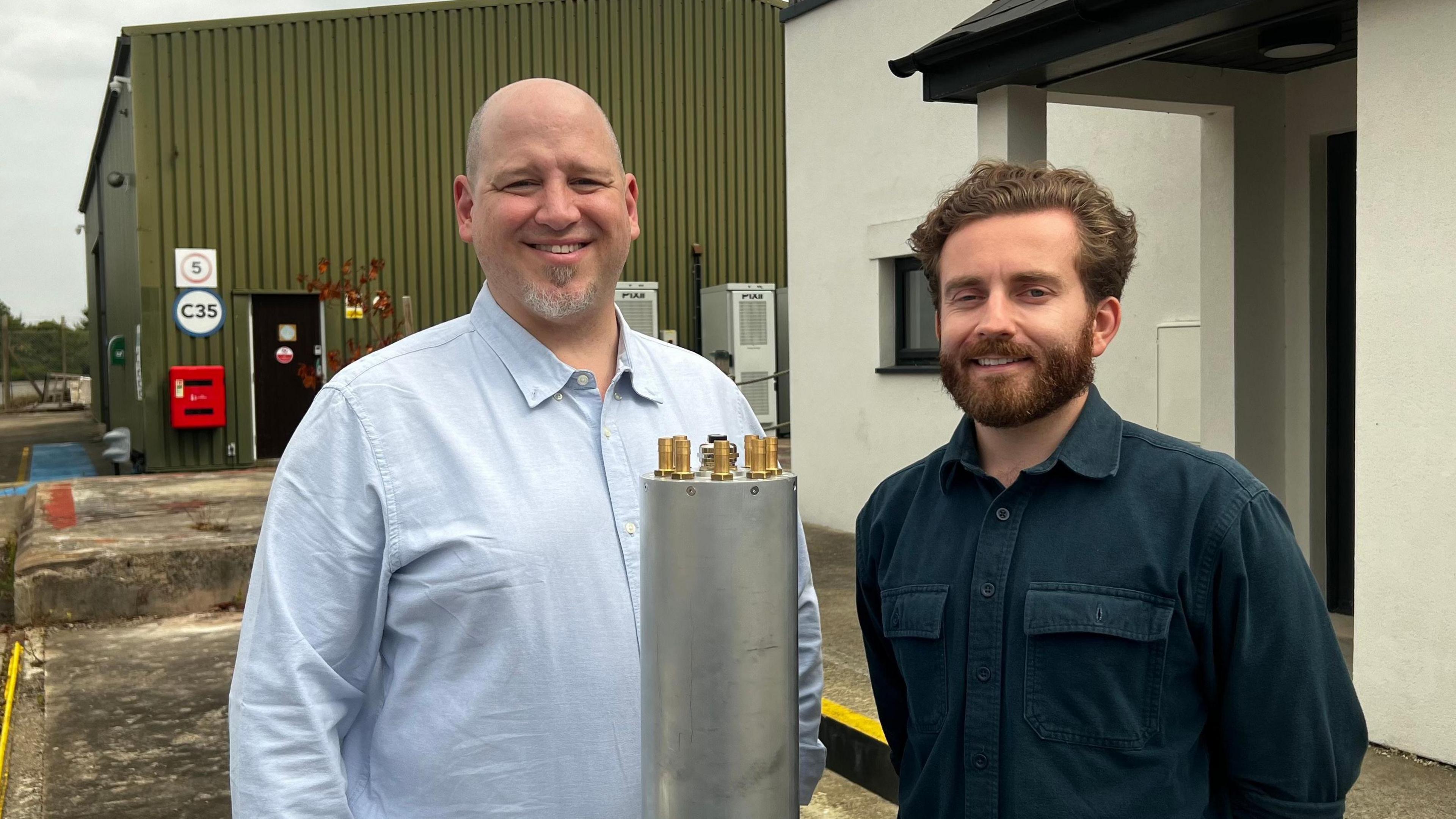
Talmon Firestone (L) and Dr Tom Wallace-Smith say their new fusion reactor will supply hospitals with vital nuclear medicine materials
Working with Dr Tom Wallace-Smith of Bristol University, Mr Firestone's company has found a new way to make these vital nuclear ingredients, without using a big nuclear fission reactor.
He showed me his latest device, a steel tube barely two metres tall.
"This is one of the first batch of multi-state fusion reactors that we're building," he explains.
Until now, they have been in a small research lab. But to run his fusion reactors at full strength they need serious protection. At Berkeley, there is an old building, called C35, which is just the trick.
"C35 has a deep concrete bunker, created to store nuclear waste, but never actually used," he smiled.
"For us, it's the perfect place to carry out our research, and then eventually produce the radioisotopes at scale."
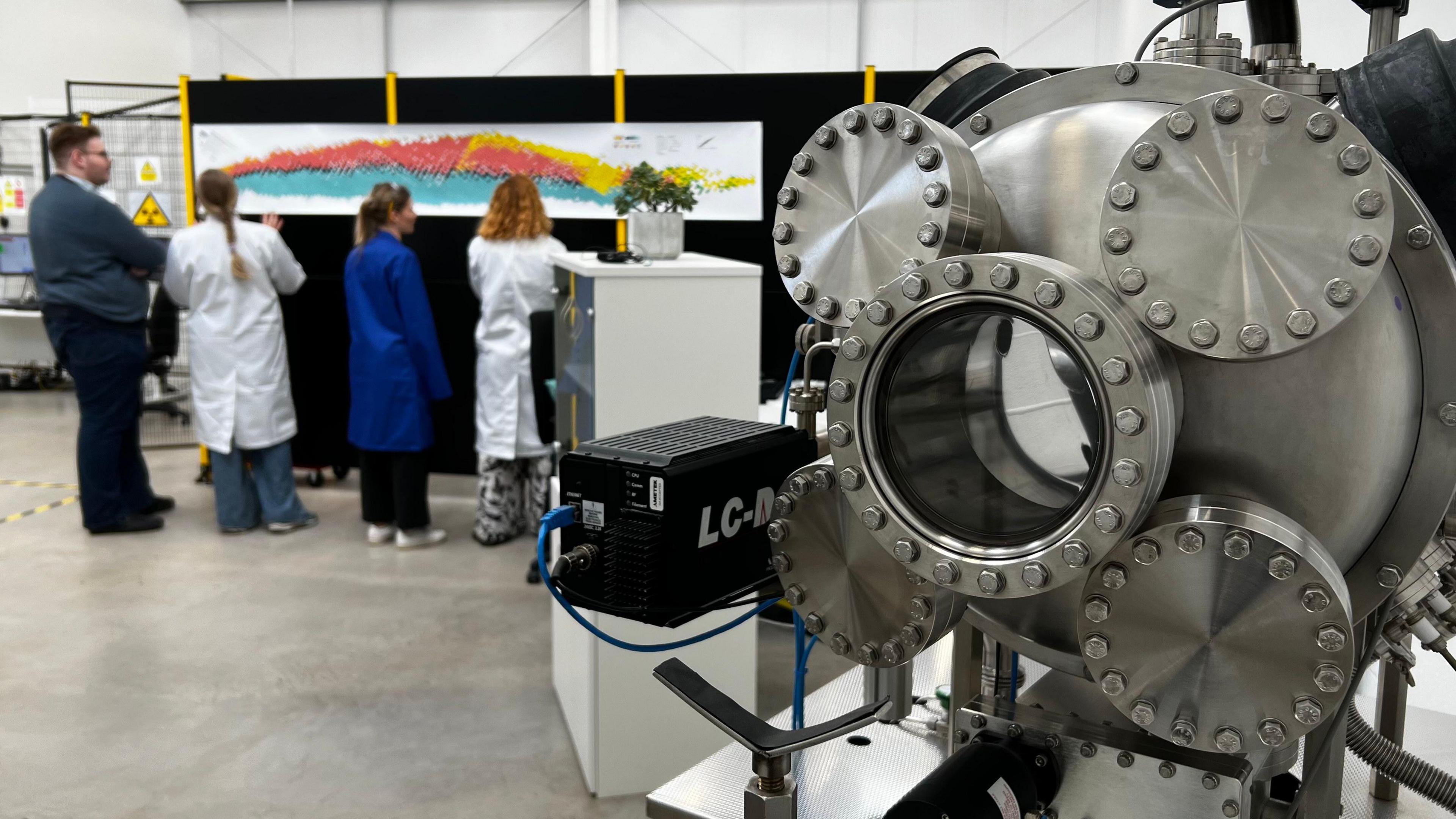
Scientists at Astral Systems labs in Bristol are aiming to create radioisotopes to lessen the need to import them from reactors in Europe
Old, unused bunkers, nuclear fusion fuel, buildings with codenames, it's all very sci-fi.
Mr Turner clearly relishes it all. And he has more, he says, in his nuclear pipeline.
"We're negotiating with the South Koreans about world-leading maritime nuclear technology.
"We're talking to a whole range of international companies about different nuclear and zero carbon technologies."
Developers always make big claims, it's their business. Chiltern Vital Group is about to submit a planning application and then will have to deal with more mundane matters.
Among them, how a small country road will cope with hundreds of tech workers commuting down it every day.
Transport links needed
The promise of new jobs was welcomed by Berkeley town councillor, Liz Ashton.
"It will generate lots of high level tech jobs which is what we need in the area.
But she raised concerns about the impact of the development on transport links.
"There are lots of problems regarding the motorway junctions. They really need to revive a good public transport system, so people won't be coming in their cars."
Get in touch
Tell us which stories we should cover in Gloucestershire
Follow BBC Gloucestershire on Facebook, external, X, external and Instagram, external. Send your story ideas to us on email or via WhatsApp on 0800 313 4630.
- Published8 July

- Published26 February
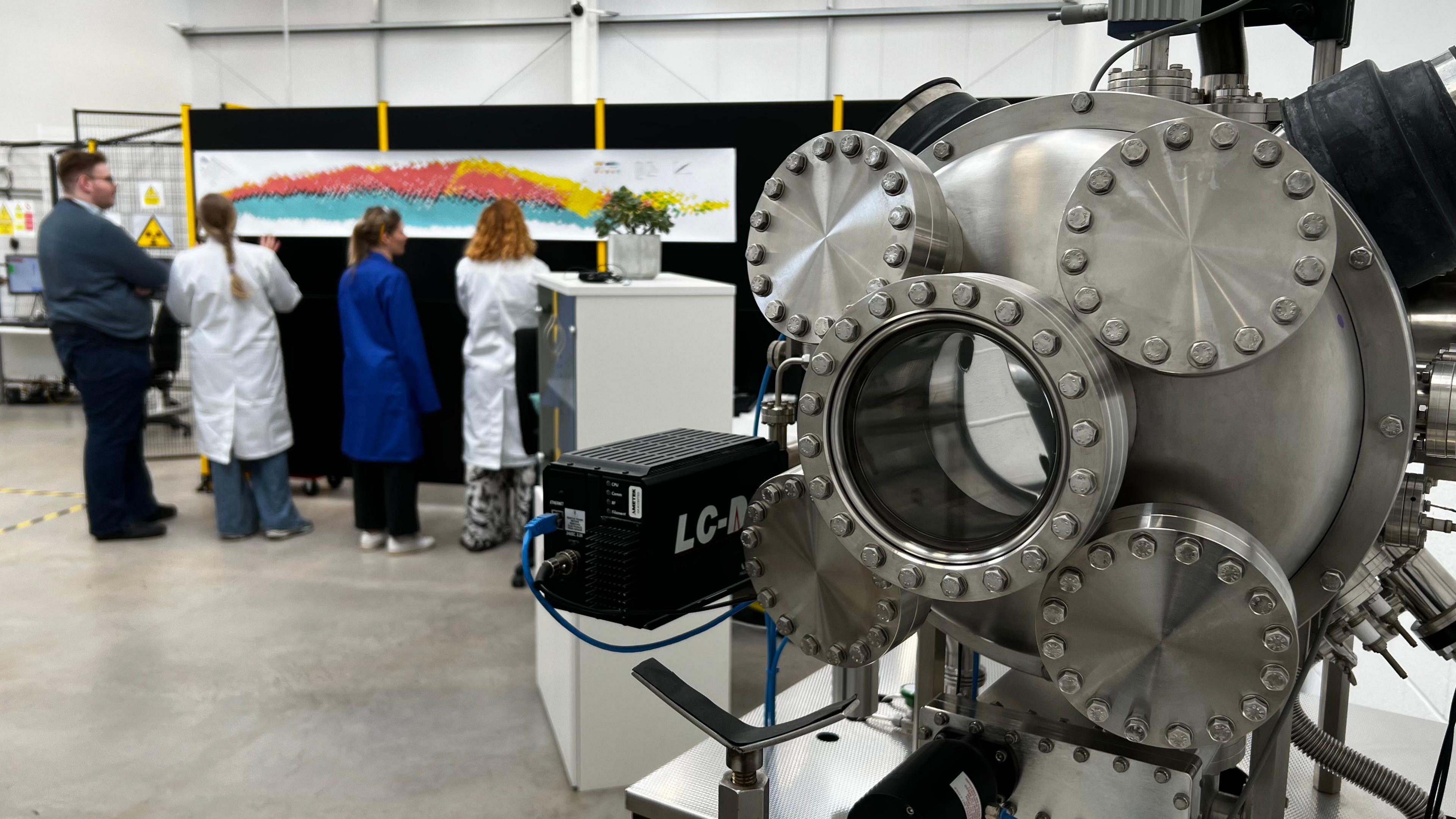
- Published1 April
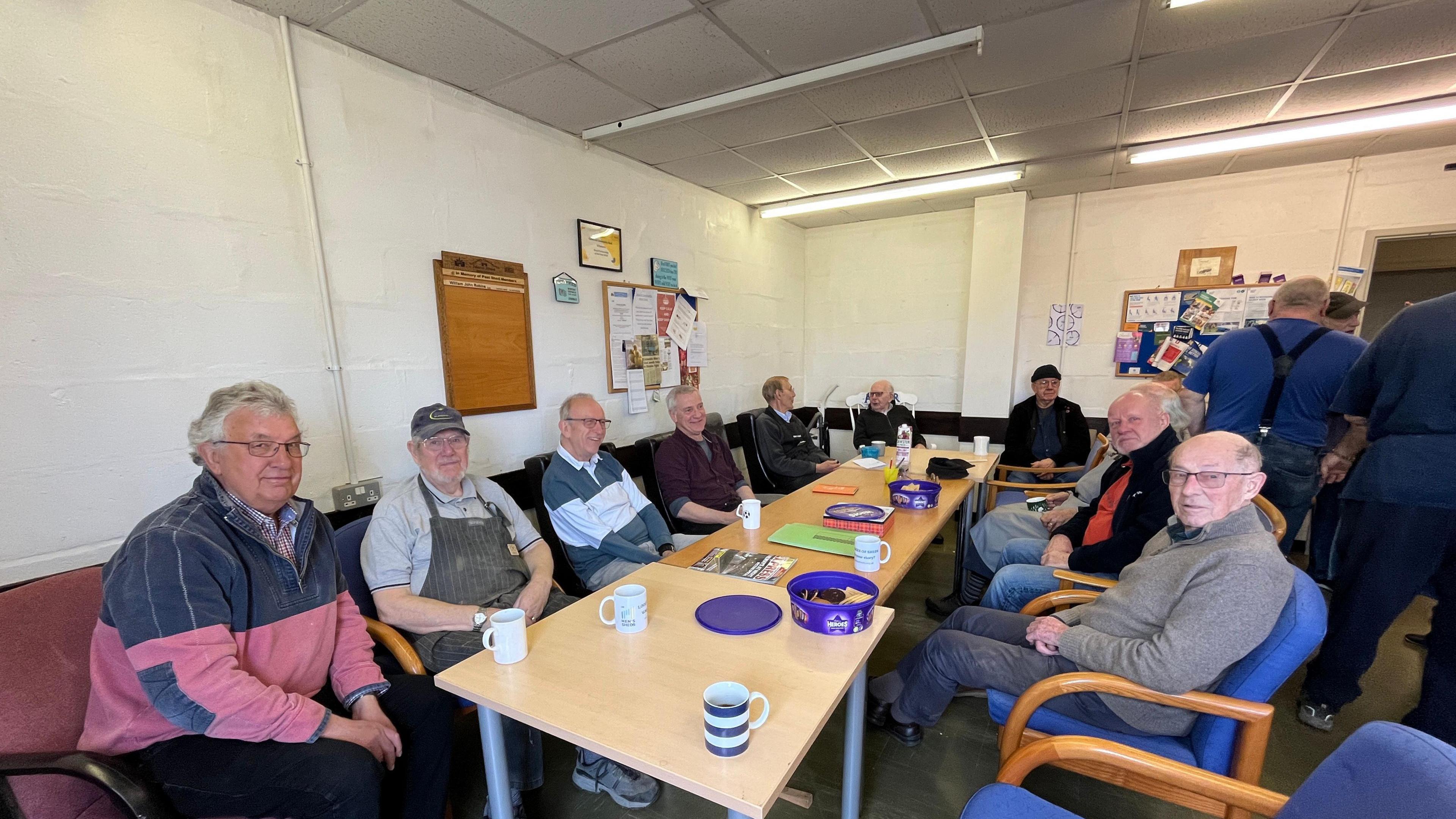
- Published29 January 2024
